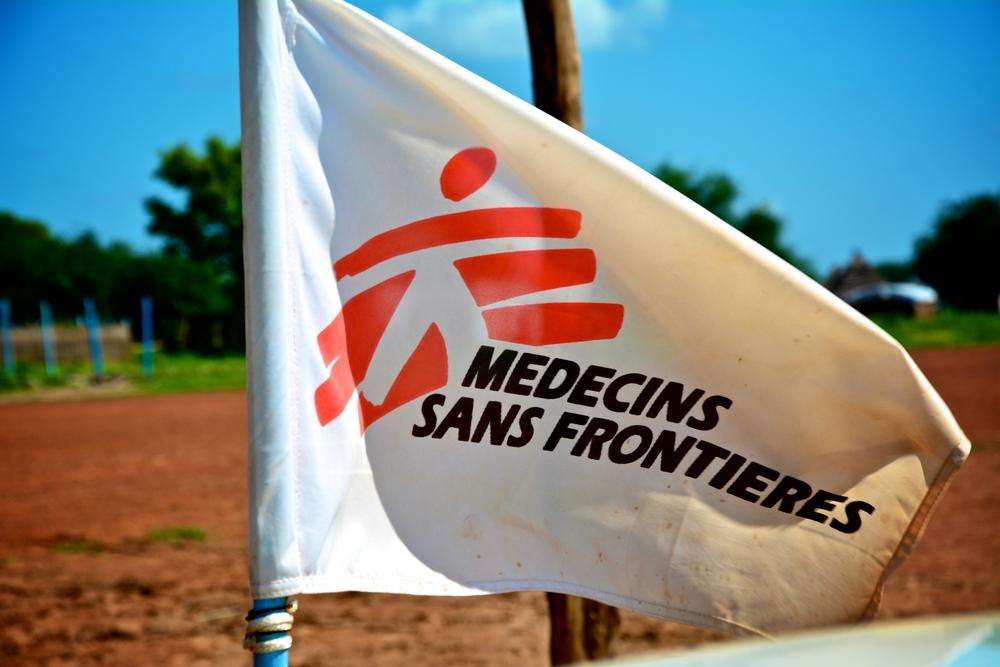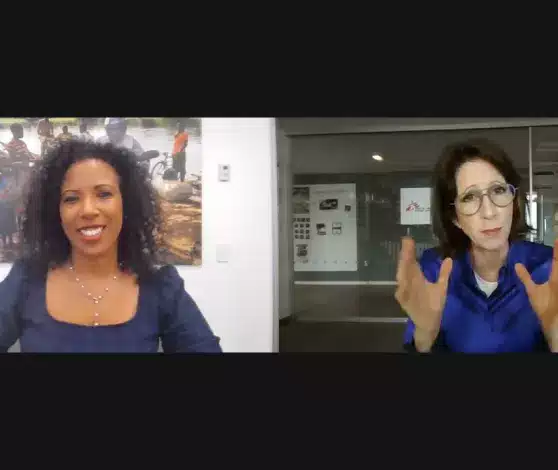Rohit Malpani, Director of Policy and Analysis of MSF's Access Campaign, testifies at a Congressional hearing on access to medicines in the Trans-Pacific Partnership trade agreement.
“Trading Views: Real Debates on Key Issues in TPP” Hearing on Access to Medicines
Thank you for providing me the opportunity to testify on behalf of Doctors Without Borders, also known as Médecins Sans Frontières, or MSF. My name is Rohit Malpani and I am the Policy Director at MSF’s Access Campaign. MSF is an international humanitarian organization which provides impartial medical assistance in more than 60 countries.
Last year we performed more than eight million outpatient consultations, treated more than two million malaria cases, vaccinated more than 1.5 million in measles outbreaks, supported HIV/AIDS and drug-resistant tuberculosis treatment programs, and responded to other medical emergencies ranging from Ebola outbreaks in West Africa, to the refugee crisis in Europe, to armed conflicts in Syria, Yemen and Afghanistan.
MSF is able to speak about the relationship between intellectual property, innovation and access to medicines, and about the role competition has played in enabling access to medical care for millions.
In 2001, patent monopolies left MSF unable to save the lives of our patients. Pharmaceutical companies charged MSF and others an astronomical 10,000 dollars per person, per year for HIV medicines. This meant that MSF and others, in the face of thousands of people dying daily from AIDS-related illnesses, could only provide treatment to a very limited number of people. In response, affected governments applied legal safeguards to foster generic competition. HIV treatment costs fell, literally overnight, to a dollar a day per person.
With competition, prices for these medicines have continued to fall and today almost 16 million people receive treatment, including through U.S. government-funded programs such as the United States President’s Emergency Plan for AIDS Relief (PEPFAR). Ninety-seven percent of the medicines PEPFAR uses are generics. This represents important savings that stretches the U.S. government’s investment and saves millions of lives.
Yet intellectual property global trade obligations, now nearly fully implemented worldwide and unnecessarily strengthened in many countries, including the U.S., are driving up drug prices.
Price-lowering generic competition remains critical to our ability to deliver effective care. We need generic competition for new HIV medicines that sustain the lives of patients on treatment and
provide better outcomes for the newly infected. Currently patented HIV medicines can be 20 times more expensive. We also need access to affordable treatment for other diseases.
New medicines to treat hepatitis C, which affects up to 150 million people, provide a critical illustration. These medicines, including Gilead’s sofosbuvir, offer the potential for a cure. However, monopoly protections have allowed Gilead to charge exorbitant prices.
Last week, the Senate Finance Committee released a report documenting how Gilead has abused its monopoly in the U.S. by pricing sofosbuvir as high as 1,000 dollars per pill. This has translated into limited access and unsustainable public expenditure. Even with clear evidence of Gilead’s monopoly abuse and knowing that it costs just slightly above one dollar per pill to produce these medicines, the U.S. government is less powerful to act than other governments, in part because relevant measures have been sacrificed under the weight of the drug industry lobby. While new hepatitis C medicines are less expensive elsewhere, they are still unaffordable, especially in middle-income countries. Some countries have safeguards that curb industry abuse. The Trans-Pacific Partnership (TPP) trade agreement would leave these countries in the same position as the U.S., powerless to address industry abuse that undermines treatment.
TPP will exacerbate the global crisis of rising drug prices
MSF has been consistently raising the alarm regarding the TPP’s negative impact on access to medicines, and the final text confirms our fears. The TPP introduces far-reaching monopoly protections that lengthen, strengthen and broaden patents and other pharmaceutical monopolies. The provisions also undermine public health safeguards that limit abuse. The deal will further delay generic competition and deepen the global crisis of escalating drug prices.
While the text has improved over initial U.S. government demands, mostly due to the widespread opposition of most TPP countries, the TPP will still go down in history as the worst-ever trade agreement for access to medicines. Vietnam, Malaysia, Mexico and Peru will be forced to change their laws to incorporate abusive new monopoly protections.
The TPP also represents a departure from prior U.S. global health commitments, including the 2007 “May 10th Deal” and the 2001 Doha Declaration on TRIPS and Public Health.
TPP is also bad for biomedical innovation
The TPP will also fail to address the urgent need for reform in the biomedical innovation system.
MSF recognizes the need to reward innovation and finance research and development. We are a humanitarian medical organization that welcomes innovations that improve treatment options.
However, the reality is that the sole reliance on high medicine prices, backed by monopolies, is a flawed paradigm for funding innovation. This leads to unaffordable prices while failing to stimulate innovation for diseases disproportionately affecting developing countries, where patients have limited purchasing power.
Our current innovation model is also failing patients in developed countries, as with antibiotic resistance. In spite of the need for new antibiotics, pharmaceutical companies, including Pfizer, the world’s largest, have abandoned antibiotic drug development. Since antibiotics must be affordable and used sparingly, the industry response has been to withdraw.
Governments are already providing drug companies tax incentives and subsidies while paying record prices. In some cases, governments are paying twice – first by paying a significant percentage of the research and development (R&D) costs and second by paying high prices.
We believe new approaches to medical innovation, including approaches that MSF has supported, are demonstrating that significant medical breakthroughs with access are possible – in particular, when incentives break the link between the cost of R&D and the price of the end product. Instead of doubling down on a broken model, the U.S. government should collaborate with other governments to introduce new approaches that promote both innovation and access.
Conclusion: TPP is a bad deal for medicine
It is incomprehensible that at the same time the U.S. and other governments are under pressure to address exorbitant drug prices, these same governments will sign a trade deal that locks in high prices and keeps generic medicines off the market for years to come.
Every country should take steps to increase access to medicines in line with its public health needs; the TPP will take away or limit key measures that promote affordable access to medicines.
The TPP is a bad deal for humanitarian medical treatment providers such as MSF, and it’s bad for people needing access to medicines worldwide, including in the U.S.
The negative impact of the TPP will not be limited to the 800 million people in the current 12 TPP countries. It is a dangerous blueprint that may establish a new global standard.
Pharmaceutical companies already enjoy some of the highest profit margins and strongest monopoly protections of any industry. Granting extended and additional market exclusivity is unnecessary to promote innovation and will cause unnecessary death and suffering. We urge you to protect public health and fight back against unjust profiteering.
MSF respectfully urges Congress to protect the health of millions of people that will be negatively impacted if the TPP is approved in its current form. The TPP should be modified or rejected.
Thank you.



